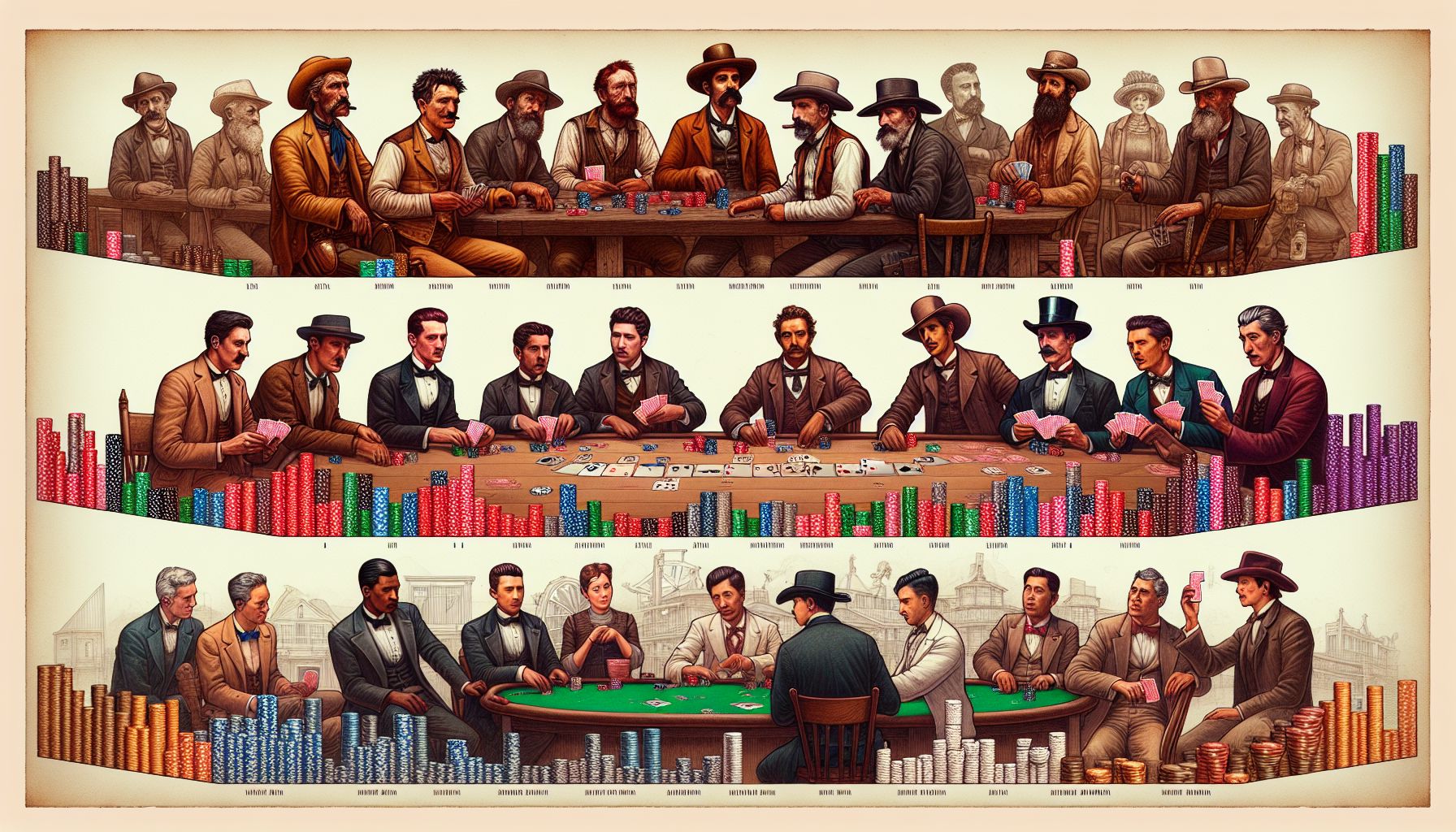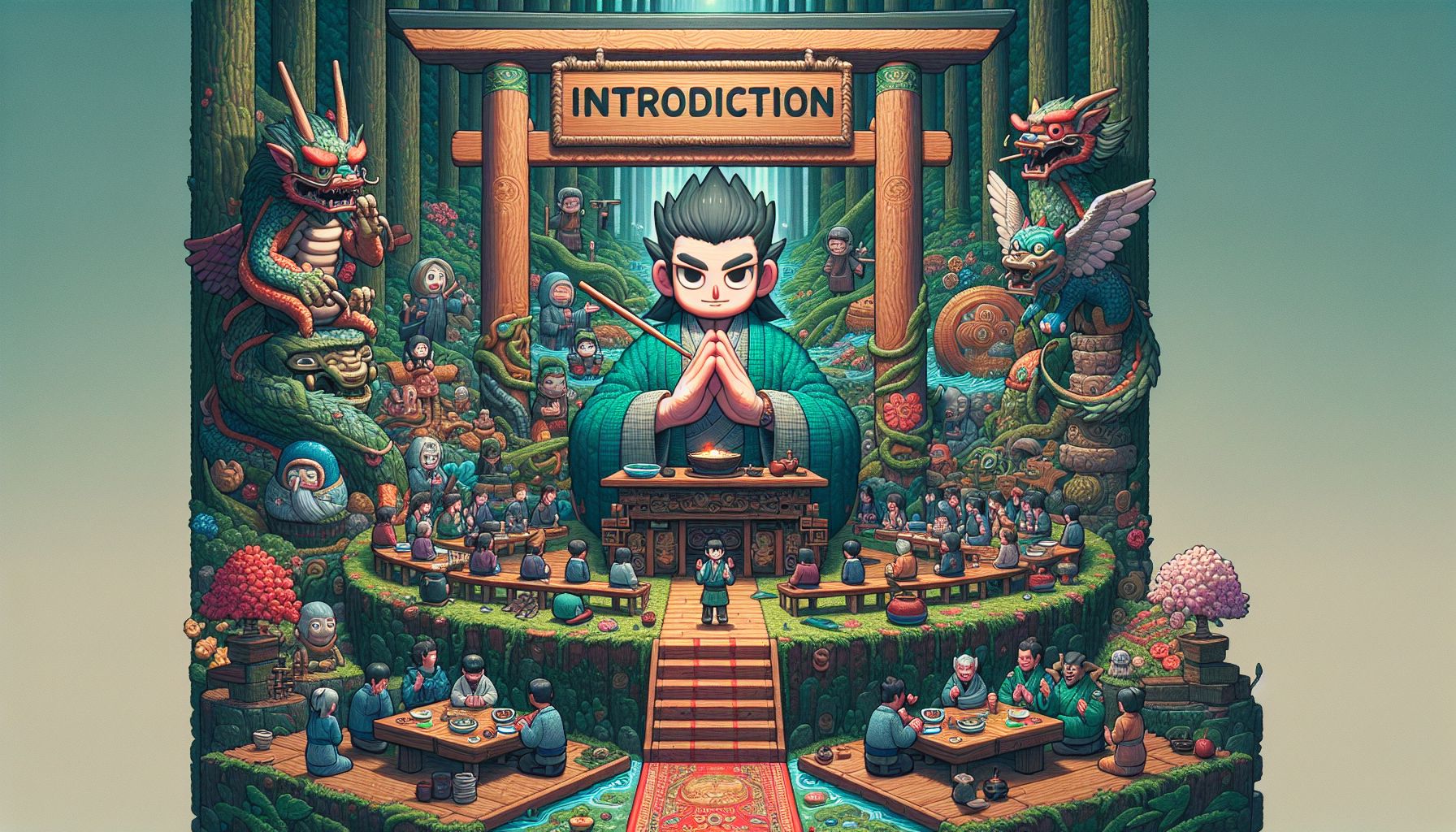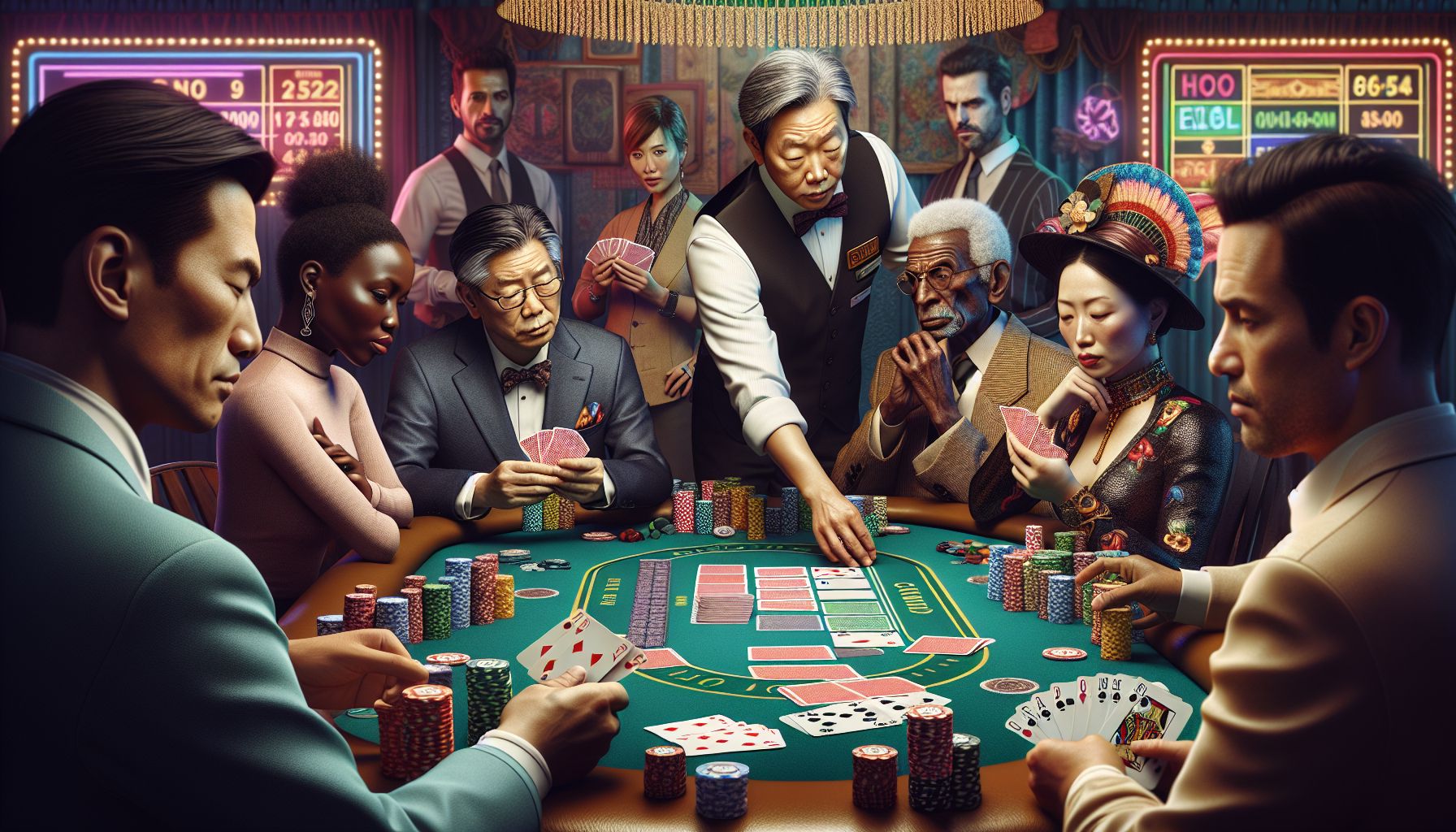Poker is not just a game; it’s an extensive world of bluffs, bets, The Rich History of Poker and nuanced strategy. It’s a global phenomenon, played by millions at physical tables, and increasingly, via online platforms. Yet, this incredibly popular game did not just emerge overnight. The history of poker is rich and deep, taking us back centuries to far-flung corners of the planet. From rough saloons in the American West to luxurious casino empires in Las Vegas, poker has a colorful, roundabout history that reflects humanity’s enduring love for games of chance and skill. Let’s delve into this fascinating journey.
Introduction
Poker’s origins are shrouded in mystery and heavily debated amongst historians. However, The Rich History of Poker everyone agrees one thing: its influence and charm remain unscathed across time and continents.
The Enigmatic Origins
Primordial poker-like games date back millennia. For instance, The Rich History of Poker the ancient Persians played a game called “As-Nas,” remarkably akin to the modern poker variant. China’s Tang Dynasty saw ‘domino cards,’ while the Egyptians of the 12th & 13th centuries developed their version with four-suited decks – a fundamental attribute of modern poker.
The closest direct ancestor to modern poker, it’s widely accepted, is the 16th-century Spanish game “Primero”. Primero introduced the concept of bluffing and betting high based on the perceived strength of a ‘hand.’
Poker’s Arrival in New Orleans
The game made its first verifiable American appearance in the early 1800s in New Orleans. It’s speculated that French colonials introduced this reinvented version of a Persian game called “Poque,” which bore resemblances to Primero.
Riverboat gamblers on the Mississippi adopted this game, often using a trimmed deck of 20 cards and four players. These were the genuine trailblazers, who gave the game its quintessential slang and legendary charm.
The Wild West Era
As American frontiers expanded westwards, poker tags along, scaling in popularity. It became the staple of bravado-filled saloons, with men compromising their fortune or buffering their portfolios over a round of this enticing game.
Poker was fundamental to the narrative of the Wild West, attested by cinematic and literary works. Iconic figures, from Doc Holliday to Wyatt Earp, were reportedly avid poker players. It’s also when the 52 card version became the norm,
Civil War Impact
The American Civil War had a significant impact on the evolution of Poker as it was a pastime for soldiers on both sides of the conflict. New variations such as Stud Poker were introduced, and the game’s popularity continued to grow post-war.
Poker’s 20th Century Modernization
In the early 20th Century, poker showcases its first signs of modernization, with the advent of community card poker games, the most famous of which is Texas Hold’em.
The rise of Vegas as the casino capital further catalyzed the poker boom. Soon, the game of chance became a bona fide sport with the World Series of Poker kicking off in 1970 at Binion’s Horseshoe Casino. The event garnered massive appeal, endorsing poker’s charm and tactics required for victory, also elevating it to an esteemed strategic pursuit like chess.
The Internet Age & the Poker Boom
The rise of the Internet in the 21st century paved the way for online poker platforms. These platforms offered 24/7 poker action, enabling new generations of poker enthusiasts. The poker boom finally hit in 2003 when Chris Moneymaker, an online amateur, won the WSOP Main Event, proving that anyone could win a poker tournament with some skill and a little luck. Online poker rooms soon attracted millions of players worldwide.
Conclusion
Poker’s journey, from its possible Persian progenitor to today’s online platforms, is a parable of the game’s adaptive durability. The game’s history mirrors our social evolution, situational influences, and technological advancements.
The allure of poker is derived from its blend of mathematical skill, psychological mettle, and that intoxicating element of luck – a mixture that is as beguiling today as it was to those riverboat gamblers of the 19th century.
From saloons to tech-infused platforms, poker retains its global fascination. As we move forward, it will continue to adapt and change, much like it has done throughout history. One thing is for sure – poker is here to stay, and its rich history only adds to its enduring allure.
Baca Juga: Shuffling Up Success: Poker Tips from Casino Legends




